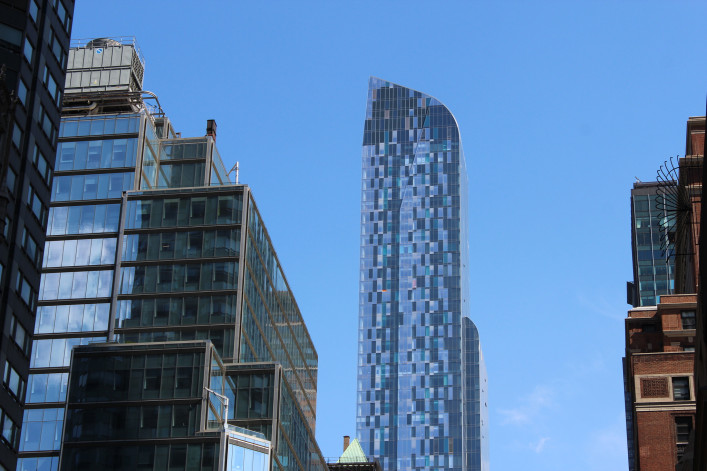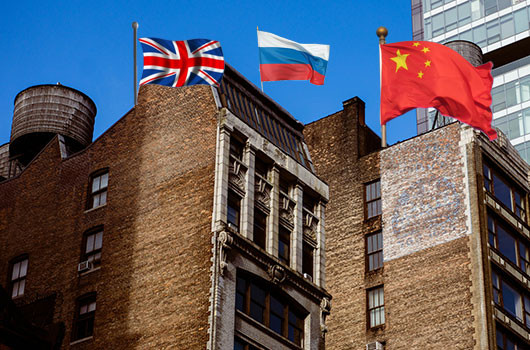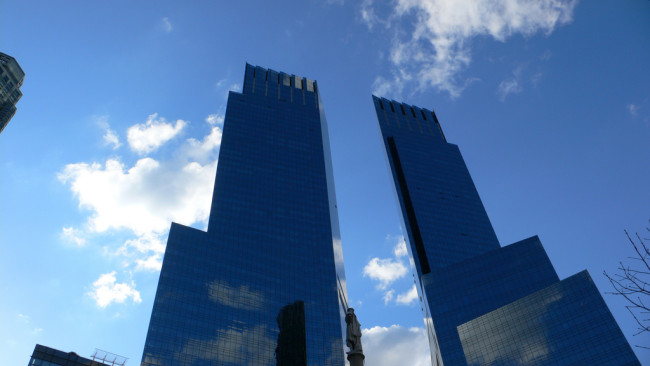Cities around the world are cracking down on foreign real estate investors, but don't expect NYC to follow suit
As prices spiral ever upward in major cities across the globe, attention has turned toward foreign buyers and investors, many of whom, it's argued, buy up properties simply as a handy investment for stashing cash, leaving them to sit empty while regular residents struggle to find a place to live.
Vancouver, British Columbia is taking a multi-pronged approach, instituting a tax on vacant apartments and a tax on purchases by foreign buyers. Similarly, the United Kingdom has instituted a "stamp tax" on second homes, and Australia has ordered hundreds of foreign nationals to sell property that was purchased in violation of the nation's housing laws.
And what about New York? After a much-publicized New York Times investigation into the shadowy foreign entities buying empty apartments in buildings like the Time Warner Center, the Treasury Department launched new regulations aimed at outing anonymous buyers both in NYC and Miami.
But as for taxes along the lines of Canada's latest measures? Don't hold your breath.
While there are certain tax incentives that benefit owners who use their New York apartments as a primary residence—for instance, the co-op and condo tax abatement, which is now only available for owner-occupants—other efforts, like a proposed pied-a-terre tax hike, have fallen flat, while further tax penalties seem unlikely.
And in the case of a flat-out tax on foreigners buying in the U.S., there's good reason for this: Such a rule would violate the Fair Housing Act, which protects buyers and renters from housing discrimination based on nationality. "The bottom line is that there's no limitation on anyone buying in the U.S. You don’t have to be a citizen," says real estate attorney Neil Garfinkel. "So the idea of focusing specifically on the foreign buyers is not in line with our fair housing laws."
As for a potential tax on vacant apartments, that could get complicated, too. "As a weapon of public policy, the property tax is more of a blunderbuss than a scalpel. It's hard to refine to get it to do what you want to do," says urban planner Julia Vitullo-Martin, noting the potential for unintended consequences like lowered city tax revenue, or driving away the "highly skilled foreign workers" New York works to attract in addition to the international pied-a-terre buyers it's looking to dissuade. "So efforts to use property taxes to manipulate the real estate market, in my opinion, are almost never a good idea."
One potential issue in New York? How to define an apartment as "under-utilized," and therefore subject to a vacancy tax. "This gets you into a whole new set of issues—is the 85-year-old widow living in her Park Avenue four-bedroom 'under-utilizing' her apartment?" asks Vitullo-Martin.
Unlike taxes on so-called "zombie houses" or abandoned properties, "with this kind of vacancy tax you'd be focusing on who owns the property, rather than its condition, and whether or not it's dangerous. It's completely different," notes Garfinkel. "We're so highly taxed to begin with, that I don't know that [the city] wants to discourage people from purchasing any more than they already are, and I haven't seen any proposals [to create new taxes]. I'm not sure that that would be such a great idea."
Vitullo-Martin concurs: "The focus first should be on equalizing what people pay in property taxes, which are disproportionately favorable for single-family home owners. It's much better to fix our current property taxes, before you start using them to manipulate the market."
You Might Also Like


























